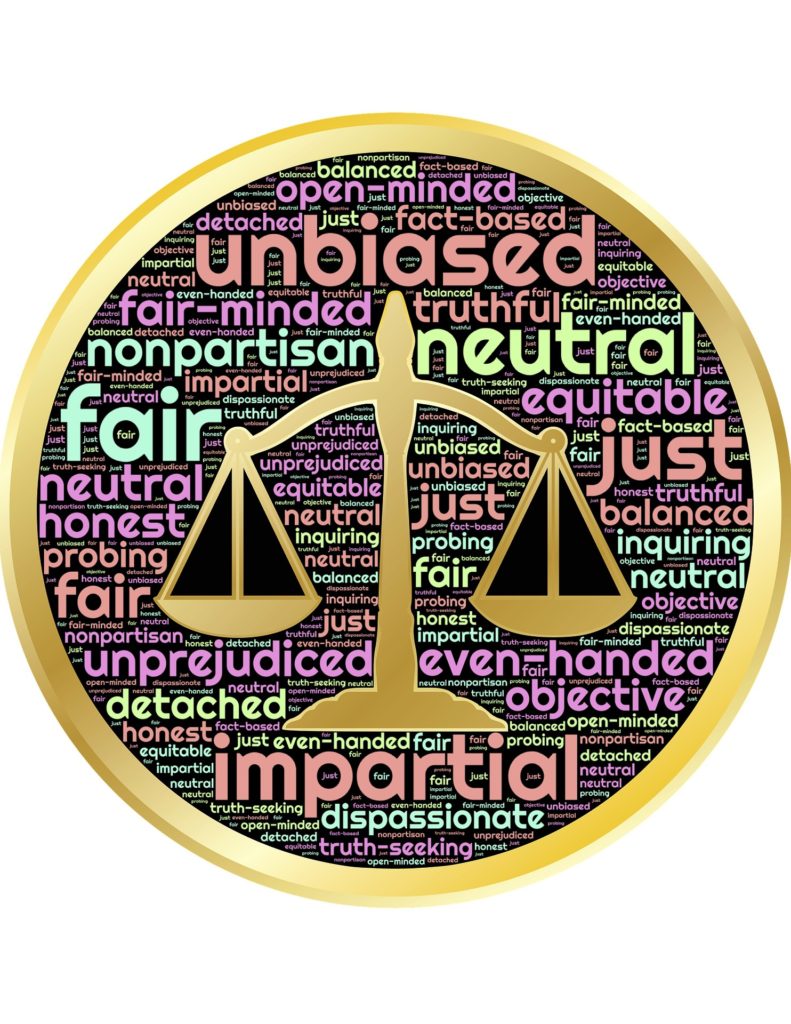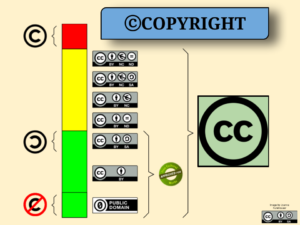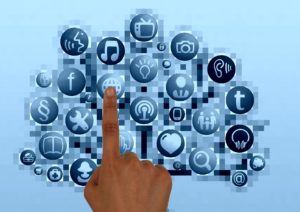The internet is a tool that makes our life more comfortable, a communication platform and a never-ending source of information, but we have to consider the issues that bring our quest to have a technology-infused life. Below, I reflect on three concepts and their implications in our everyday activities.
Digital Footprint
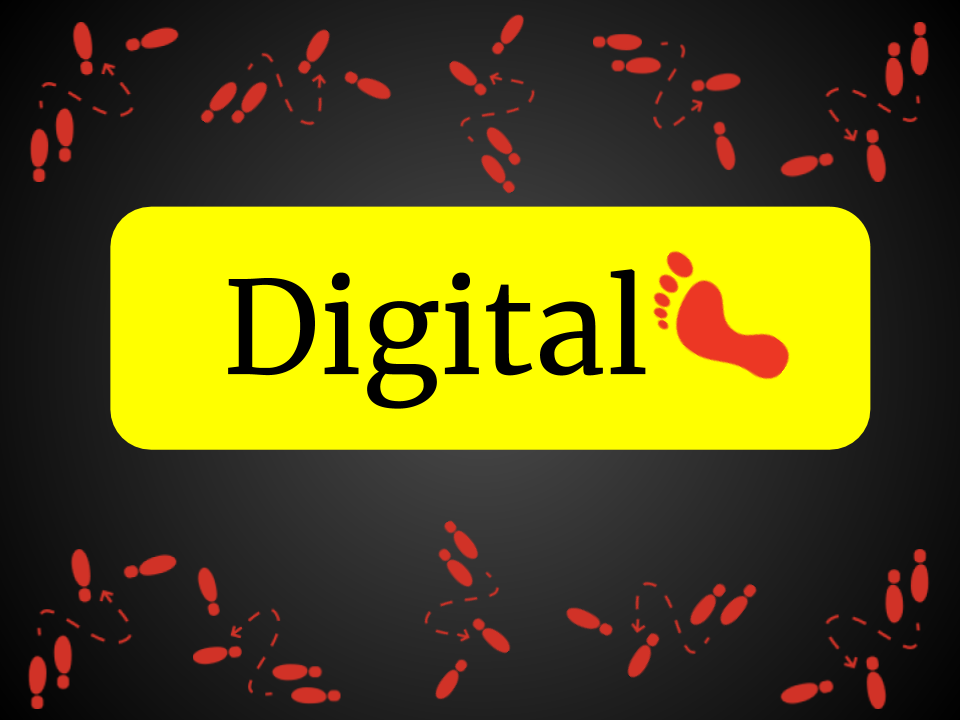
Icon made by Freepik from www.flaticon.com
Young people that were born in the 1990s are the first generation ever to leave connected and have mobile devices available. Kids on this generation will never have to read a paper map, ask directions or even have a landline phone number. Their use of technology shapes their personality, the applications or sites they use, the content they share, and all of those decisions will determine their digital footprint.
Your digital footprint is your online reputation; it can be positive or negative and affect how people see you and the opportunities that you may have in the future.
Have you ever Googled yourself? Nervous about what you may find out? If you have done it and your profile is clean congratulations! If not, following the tips below will help you start cleaning up your image, it is never too late to start building a positive online footprint.
Tips for Maintaining your Online Reputation
- Search yourself online, if you find something that you don’t want on the web ask the responsible person to take it down.
- Check your privacy settings on social media.
- Delete any inactive accounts.
- Carefully think before you post.
- Build a positive footprint by sharing constructively and collaborating with others.
- Use strong passwords.
The Filter Bubble
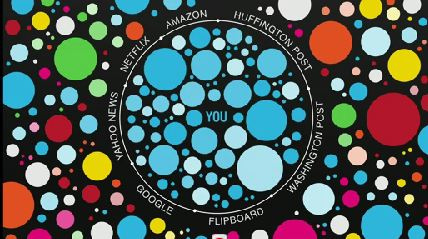
When we use the internet to search for information, as well as when we make purchases online, using social media or sharing information we also leave a digital footprint. Many online companies have been utilizing our information, collecting as much personal data about the users as possible to personalize their experience. In time we will be living in our information universe and will not be able to see anything outside of our personal bubble, in other words, information will be hidden from us without us even noticing it. Our Interests will determine what we will be able to see, leaving less room for innovation, creativity, and exchange of ideas. The search results of the same topic for different people significantly vary because they are tailored to us. It is crucial to understand the future consequences and how this filter bubble could narrow our view of the world by not allowing us to get exposed to challenging ideas and others’ points of view.
Net Neutrality
In 2015 the Federal Communication Commission approved keeping the internet open and free. “Internet service providers will not be able to block or slow down traffic, give priority to Web services which can afford to pay for it, or limit content options by pricing out small or startup information providers” (Long, 2015).
Net neutrality says all users should be able to use their bandwidth however they want as long as it’s legal. It also means that the service provider should not be able to prioritize internet service. All websites should be treated equally, and all users should be given bandwidth to reach the internet-connected services they prefer.
Proponents of this concept believe that users should be able to determine how they use their bandwidth. Those against net neutrality think that they should be able to distribute bandwidth differently depending on the service and the cost. Internet Service Providers (ISPs) are inclined to have tiers of service that are more about paying for priority than for bandwidth.
The arguments of net neutrality
The stronger argument for net neutrality is not to give ISPs too much power and the opportunity to abuse it. The Internet service provider (ISP) could provide certain favored services faster speeds of the internet and make others slow down to the point of damaging their businesses and with this decreasing innovation and stopping new services from blooming. ISP could block services that compete with their own from the users’ devices to one more time favor their business or even charge more to companies that have high demand so they can make a profit.
Imagining education without net neutrality
The main issue of a lack of net neutrality in education would be paid prioritization. It is possible that a specific content provider could have a preference and faster internet service because of a more significant financial investment. This situation would hurt free and smaller content providers like libraries who could not afford a fast internet connection to offer their digital collections. Schools would be paying more for commercial content since the library free content could be slowed down or restricted.
Without net neutrality we would be in danger of prioritizing entertainment and Commercial offerings over educational content, maximizing profit for big content providers and minimizing education.
For teachers trying to implement technology into their classes, it is possible that paid content would be more available than free content due to the manipulation of the ISP ’s. If ISPs favor specific paid sources and tools, educators would have fewer options from which to choose, and by being the paid options more readily and reliably, districts and ultimately teachers would be forced to spend more money on class digital resources.
Innovative student entrepreneurs would not afford to reach the audiences due to higher costs making almost impossible for these organizations ever to grow to be strong companies.
Freedom of accessing information would be severely affected if the ISP’s can block, prioritize or discriminate web content, then they are deciding for the users what can be accessed online.
Final thoughts
As technology continues to expand and our lives to adapt, let us keep our minds open to interrogate how the innovations work and affect our existence, keeping ourselves on the loop of the significant and not only momentarily relevant information. If you are an educator use your influence not just to teach your content area but to educate students about the issues that will affect their view of the world and even control their exposure to others’ opinions. Teach them to be analytic and that the web is not only social media but a continuous modifier of life.
References
- An introduction to net neutrality. (2014) Retrieved from http://www.marshalldata.com/2014/05/an-introduction-to-net-neutrality-what-it-is-what-it-means-for-you-and-what-you-can-do-about-it/
- Pariser, E. (2011). Beware online “filter bubbles.” TED2011. Retrieved from https://www.ted.com/talks/eli_pariser_beware_online_filter_bubbles#t-520830
- Pariser, E. (2015). Did Facebook’s big new study kill my filter bubble thesis? Retrieved from https://medium.com/backchannel/facebook-published-a-big-new-study-on-the-filter-bubble-here-s-what-it-says-ef31a292da95
- Federal Communications Commission (2015). Open internet. Retrieved from https://www.fcc.gov/openinternet
- Long, C. (2015). What net neutrality means for students and Educators. Retrieved from http://neatoday.org/2015/03/11/net-neutrality-means-students-educators/
- Reardon, M. (2015). 13 Things you need to know about the FCC’s net neutrality regulation. Retrieved from http://www.cnet.com/news/13-things-you-need-to-know-about-the-fccs-net-neutrality-regulation/


